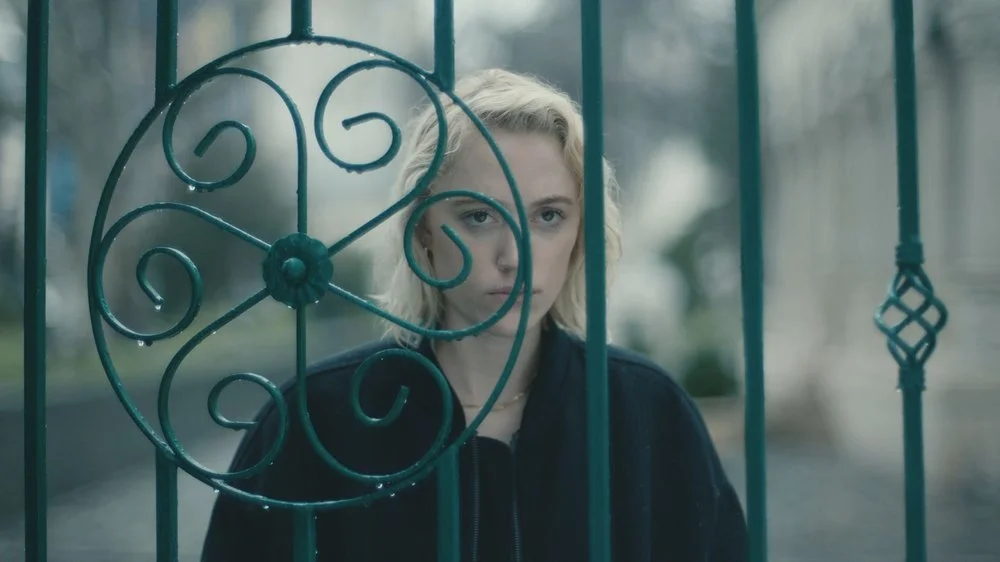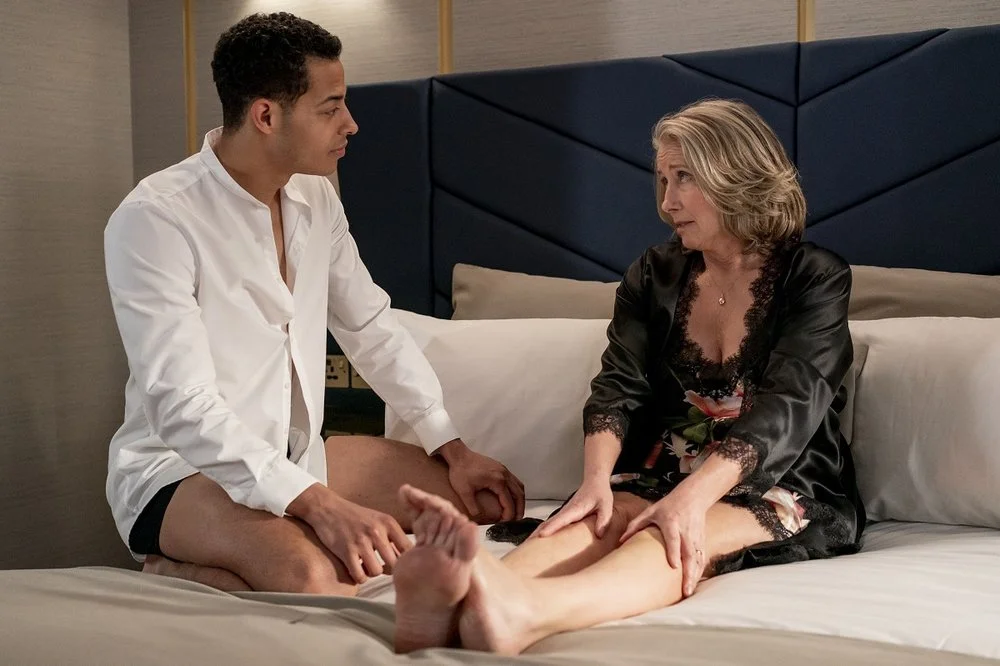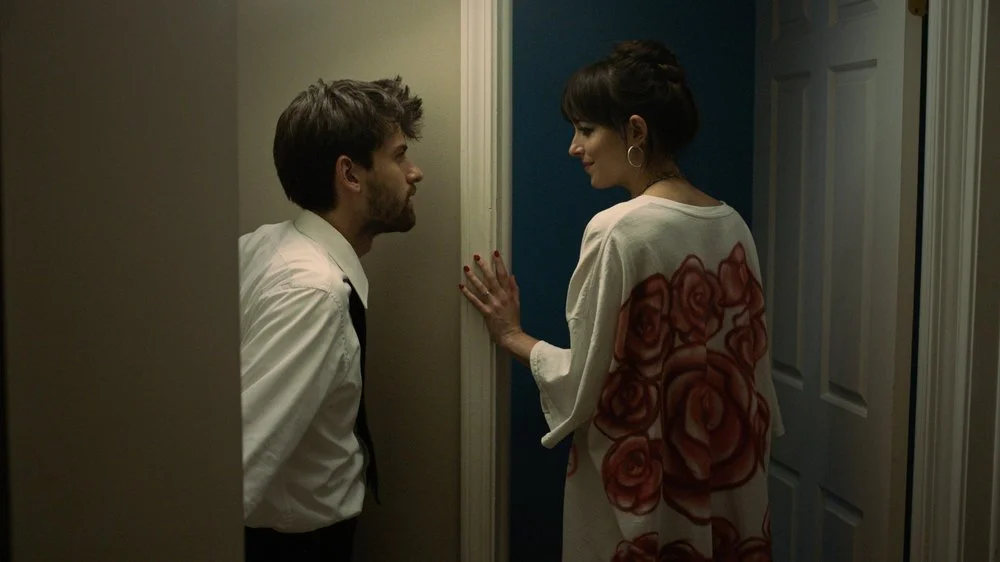Chicago Critics Film Festival 2022: The Watcher
Writer-director Chloe Okuno maintains many a precarious balance for her feature directorial debut “Watcher.” It’s not just the suspense and horror that remain consistent, it’s the fact that the film could’ve devolved into another stereotypical American fantasy about the horrors awaiting innocent blonde Americans who dare to step foot in eastern Europe.
Good thing Okuno is uninterested in giving us the luxury of an “it couldn't happen here” cinematic experience. Julia (Maika Monroe in what might be her most noteworthy role since her 2014 breakout “It Follows”) is indeed an outsider who’s newly arrived in the city of Bucharest. Having moved with her husband Francis (Karl Glusman) for his job and recently given up acting, she’s somewhat lost and instantly sympathetic since she’s almost completely dependent on Francis to navigate a culture, city, and language completely unfamiliar to her.
Their spotlessly immaculate new apartment also unsettles from the beginning, as the camera pulls back to frame their window with a voyeuristic glee that indicates they should really make use of the curtains. But what begins as a kind of tribute to “Rear Window” quickly becomes a dissection of just what lies behind that kind of invasive male gaze, with its constant need to watch and obsess over the pretty blonde just out of reach. And what happens when the woman under the microscope looks back? And decides to fight back?
If she even can, that is. When Julia begins to see a neighbor across the way is watching her during her husband’s long workdays, then following her when she leaves her home, she somewhat doubts her own reality the way vulnerable, twentysomething women often do when they’re just beginning to grapple with the gaslighting nature of sexism. The indicators that things won’t go well also start early and even closer to home, with her husband throwing out little early warning signs such as his refusal to request that his peers speak English around her, to asking if having the audacity to look back is what is attracting her stalker, and finally, refusing to believe she’s being stalked at all.
The eerie current of unease will be familiar to even casual fans of Fincher and Polanski, but Okuno gleefully channels her inspirations to bring a feminist twist to “Watcher,” even making use of a scene from “Charade.” But Julia isn’t Audrey Hepburn, and the closest thing to a reassuring Cary Grant type is her only friend Irina’s (Madalina Anea) ex, whose urge to check up on Irina doesn’t prevent him from believing Julia and even attempting to scare off her pursuer.
That anyone would doubt Julia’s fears in a city with a serial killer dubbed The Spider on the loose is made frighteningly believable, and Julia’s choosing to believe herself in spite of her husband and the police dismissing her is a triumph in a film where a single hand wave can be as terrifying as any flashy chase scene. But then, when you have a villain as terrifying as Burn Gorman is, who needs big effects?
But that terrifying effectiveness is only possible in a system that dismisses women’s fears until their bodies are found. In such an environment, the film’s grotesque conclusion almost feels like wishful thinking. When such catharsis, borne of violence and blood, becomes empowering, it’s also the ultimate horror - there should be another way to survive long enough to say I told you so.
Grade: A-




